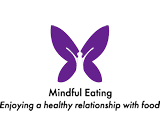 Why It Can Be Hard To Stick To A Diet And What To Do Instead
Why It Can Be Hard To Stick To A Diet And What To Do Instead
Read more about my webinar: ‘How To Transform Your Eating Habits For A Better Relationship With Food’.
Considering one-to-one sessions?
Introduction
When we think about going on a diet, a word that probably springs to mind for many of us is willpower. In weight loss and dieting terms, willpower is about using self-control around food to reduce energy (calorie) intake in order to lose body fat. Diets often involve following certain rules, which might categorise foods as ‘allowed’ or ‘forbidden’. A person might therefore attempt to not only consume fewer calories when on a diet, but they might also try to cut out particular foods that they love to eat. The problem with denying ourselves foods we love is that before long we usually start to crave them; or if a person is trying to drastically cut down on how much they’re eating, they’re likely to start feeling hungry, cold and even grumpy. That’s why dieting can potentially lead to binge eating, or people might get stuck in a cycle of yo-yo dieting.
“I’m thrilled that I’m losing weight and I can’t believe that I can actually lose weight and not hate the process. It’s all thanks to you!”
A Weight Loss Goal By Itself Is Ineffective
Whilst weight loss clubs give people plenty of opportunity to focus on and achieve their weight loss goals, there’s usually less focus on helping an individual to understand why they might overeat in the first place or why they find it hard to eat in a balanced way, which might keep them stuck in a cycle of yo-yo dieting, or swinging between binge eating and restrictive eating. In most cases a weight loss goal by itself is ineffective, which is why many people re-gain weight after they’ve lost it. Underlying factors in terms of a person’s mindset must be considered alongside, or as a first step.
 So what are some of the main reasons why it’s hard to stick to a diet, and what’s the alternative? One of the main factors is that many people are focused exclusively on the weight loss goal, to the exclusion of understanding their relationship with food, how they behave around food and why they might have a tendency to overeat. They just want to get to goal and that’s it. They don’t necessarily think about the bigger picture, the context in which we eat- our mindset in that moment and eating triggers (psychological, social, behavioural, the food environment, physiological). Food and eating can also symbolise different things to different people, so each person requires a personalised approach, not a generic diet plan.
So what are some of the main reasons why it’s hard to stick to a diet, and what’s the alternative? One of the main factors is that many people are focused exclusively on the weight loss goal, to the exclusion of understanding their relationship with food, how they behave around food and why they might have a tendency to overeat. They just want to get to goal and that’s it. They don’t necessarily think about the bigger picture, the context in which we eat- our mindset in that moment and eating triggers (psychological, social, behavioural, the food environment, physiological). Food and eating can also symbolise different things to different people, so each person requires a personalised approach, not a generic diet plan.
Building self-awareness and self-insight around your eating habits and relationship with food is a key starting point, from which you can then identify strategies to start making more helpful food choices, enabling you to eat in a more moderate, mindful way, so that you become less reliant on ‘quick-fix’ diets, and get to the point where you want to, and are able to, ditch restrictive diets for good, as well as any notion of ‘perfect’ eating.
Feeling ‘Safe’ With Rules
Whilst some people pride themselves on their dramatic weight loss successes via restrictive, ‘quick-fix’ weight loss plans, there are many factors that can make it hard to stick to a diet. These include all-or-nothing thinking / behaviours (see below) as well as impatience to get to goal weight, which can make it hard for a person to consider any other method of weight loss- for them, going on a strict diet seems like the only solution because not only does it give them clear guidelines to follow, but the diet might also promise a specific amount of weight loss in a certain time frame. I’ve often heard people say that they prefer rules and structure, because they don’t trust themselves around food. However, we need to think about the bigger picture, and all of the various influences on eating behaviour.
Willpower Is Like A Phone Battery- It Runs Out
We can’t rely on willpower alone. If people are relying primarily on willpower to not eat ‘bad’ foods, or to not go over a certain daily calorie allowance, the issue is that willpower is like a battery, it runs out. Willpower tends to run out towards the end of the day, because adopting willpower uses up a lot of brain energy. Because the act of willpower can be mentally draining, for many people the evenings are the ‘danger zone’, partly because they might be surrounded by tempting foods, but also by the evening we’re more likely to be tired, making it harder to exercise willpower. They might have started their diet that morning but by the evening, things might not be going to plan.
Diets Encourage All-Or-Nothing Thinking & Behaviours
 It can be hard to stick to a diet because dieting can encourage an all-or-nothing mindset- you might try to follow a diet plan perfectly but the moment you go off track (it might be just a slice of cake or an indulgent meal in a restaurant), you feel you’ve blown it, so you might write off the rest of the day and start again tomorrow, or after the weekend. All or nothing thinking tends to view things as either ‘good’ or ‘bad’, and this type of thinking also has a knock-on effect on behaviours. Examples of all-or-nothing behaviour include weekday restraint and weekend overindulgence, or starving before a holiday and completely overindulging whilst you’re away. These kinds of behaviours mean that you completely undo all the effort you made whilst you were being ‘good’, which means that in the long-term you just don’t get the results you’re striving for because you’re unable to be consistent with your eating. Labelling foods as ‘good’ or ‘bad’ is a reflection of all or nothing thinking. Eating ‘bad’ foods can lead to self-judgement and potentially a feeling of ‘failure’, a loss of motivation and giving up the diet. To read about how to achieve more ‘middle-way’ eating, the benefits of the mindful eating approach, having a more flexible attitude towards eating and escaping the diet trap, see my blog post ‘How To Stop Overeating With ‘Middle-Way’ Eating’.
It can be hard to stick to a diet because dieting can encourage an all-or-nothing mindset- you might try to follow a diet plan perfectly but the moment you go off track (it might be just a slice of cake or an indulgent meal in a restaurant), you feel you’ve blown it, so you might write off the rest of the day and start again tomorrow, or after the weekend. All or nothing thinking tends to view things as either ‘good’ or ‘bad’, and this type of thinking also has a knock-on effect on behaviours. Examples of all-or-nothing behaviour include weekday restraint and weekend overindulgence, or starving before a holiday and completely overindulging whilst you’re away. These kinds of behaviours mean that you completely undo all the effort you made whilst you were being ‘good’, which means that in the long-term you just don’t get the results you’re striving for because you’re unable to be consistent with your eating. Labelling foods as ‘good’ or ‘bad’ is a reflection of all or nothing thinking. Eating ‘bad’ foods can lead to self-judgement and potentially a feeling of ‘failure’, a loss of motivation and giving up the diet. To read about how to achieve more ‘middle-way’ eating, the benefits of the mindful eating approach, having a more flexible attitude towards eating and escaping the diet trap, see my blog post ‘How To Stop Overeating With ‘Middle-Way’ Eating’.
“After years of yo-yo dieting, I felt lost with food…” “Thanks to Emma a bad food day doesn’t scare me.”
Dieting Without Considering Your Relationship With Food
Many people feel that in order to control their food intake they need to put themselves on a diet. By embarking on a diet with rules that tell them what they can and can’t eat or how much they’re allowed to eat, they believe they will be able to control their eating and lose weight. The problem is that many people go on diets without really addressing their eating habits and relationship with food. It’s only once you’ve identified and addressed any problematic eating habits (such as emotional eating or mindless eating) that you can then find ways to eat in a more balanced way and improve your eating habits long-term. Understanding the causes of a person’s problematic eating habits requires looking at the whole picture, including body image, lifestyle, mental health, personality, self-worth and past experiences. Understanding how a person’s relationship with food and eating habits have been shaped and maintained over time can provide them with insight and help them to come up with strategies for positive change, and enable them to tackle lack of self-belief that can stem from years of yo-yo dieting.
“I’d binge eat then restrict myself and was always on a diet. I realised I’d always categorised food into ‘good’ or ‘bad’”.
Emotional Eating: Turning To Food To ‘Cope’ Or Feel Better
 Emotional eating is about eating for reasons other than physical hunger, and many people say they’re ‘comfort eaters’. Eating can be a way of having a break, it can have a calming effect, it can act as a distraction or provide a temporary release from difficult situations or from one’s own state of mind; it can be a way of taking or relinquishing control, and it can even be a means of rebelling or ‘rule breaking’. Food might be used as a way to try and self-soothe or even self-punish. Eating can become a diversion from dealing with unpleasant feelings or problem solving- it can be a compulsive knee-jerk reaction when things get difficult. If a person’s eating is out of control, they can benefit from building self-insight and identifying what food symbolises for them and how they might be using food as a coping mechanism, who or what triggers them to eat, and start finding strategies to address overeating and feel more in charge of food, rather than feeling that food is controlling them. Read my blog post: ‘How To Stop Emotional Eating’.
Emotional eating is about eating for reasons other than physical hunger, and many people say they’re ‘comfort eaters’. Eating can be a way of having a break, it can have a calming effect, it can act as a distraction or provide a temporary release from difficult situations or from one’s own state of mind; it can be a way of taking or relinquishing control, and it can even be a means of rebelling or ‘rule breaking’. Food might be used as a way to try and self-soothe or even self-punish. Eating can become a diversion from dealing with unpleasant feelings or problem solving- it can be a compulsive knee-jerk reaction when things get difficult. If a person’s eating is out of control, they can benefit from building self-insight and identifying what food symbolises for them and how they might be using food as a coping mechanism, who or what triggers them to eat, and start finding strategies to address overeating and feel more in charge of food, rather than feeling that food is controlling them. Read my blog post: ‘How To Stop Emotional Eating’.
It’s very common for people to eat when they feel bored, stressed, upset, lonely, angry or unfulfilled, and emotional eating can really get in the way of a person’s attempts to eat in a moderate, healthy way and achieve weight loss goals. If food is a person’s automatic go-to when they’re feeling any emotional discomfort, it can be hard to stick to a diet for more than a few days or weeks, and so by having a bit of patience and addressing emotional eating first, weight loss can be a positive by-product, rather than simply focusing on a weight loss goal, which is what can keep people trapped in yo-yo dieting. Going on a diet can make us feel like we’re doing something productive but in fact we know deep-down that most diets are unsustainable and produce only short-term results.
“One of the biggest realisations was the detrimental effect that years of trying different diets had had on my relationship with food”.
Self-Sabotage
 Many people tell me that they tend to self-sabotage. There can be many reasons for this, and sometimes we might have to dig a bit deep to find out what might be going on. Some people, without realising it, might be hiding behind their fat. It can act as a false protection mechanism. One example is if a person has experienced sexual abuse in the past- perhaps now they’re fearful of entering relationships or being attractive. If a person is overweight and lacking confidence or self-belief, they might remain overweight if they think that people have fewer expectations of them if they carry excess weight and have accompanying health issues. Another potential reason for self-sabotage might be that they have a lot of weight to lose and the goal seems too far off, so they feel unmotivated and have difficulty sticking to the diet. Perhaps they have a history of yo-yo dieting and have the self-limiting belief that they always fail at diets, encouraging a ‘What’s the point?’ attitude.
Many people tell me that they tend to self-sabotage. There can be many reasons for this, and sometimes we might have to dig a bit deep to find out what might be going on. Some people, without realising it, might be hiding behind their fat. It can act as a false protection mechanism. One example is if a person has experienced sexual abuse in the past- perhaps now they’re fearful of entering relationships or being attractive. If a person is overweight and lacking confidence or self-belief, they might remain overweight if they think that people have fewer expectations of them if they carry excess weight and have accompanying health issues. Another potential reason for self-sabotage might be that they have a lot of weight to lose and the goal seems too far off, so they feel unmotivated and have difficulty sticking to the diet. Perhaps they have a history of yo-yo dieting and have the self-limiting belief that they always fail at diets, encouraging a ‘What’s the point?’ attitude.
Once a person loses weight they’re living in a smaller body which needs less food, and if a person is an emotional eater or simply loves eating a lot of food, they might have little desire to reach a goal weight if it means they won’t be able to eat as much food as they did when they were larger- a larger frame requires more energy, and therefore more food. Fear of failure can be another- a fear of criticism from others if they gain back the weight, or even ridicule. When a person has a lot of weight to lose which will potentially transform them, this can bring with it fear of the unknown- how will people respond to them when they’re much slimmer? There can also be an underlying fear of change- sometimes sticking with the familiar feels like the best option. A client once told me that the reason she self-sabotages is because she’s always had a tendency to seek approval from her mother, and would rather be a ‘work in progress’ instead of getting to her weight goal and still not being ‘good enough’.
Restrictive eating can lead to bingeing, another reason for self-sabotage- the diet is simply not enjoyable and requires a lot of mental energy and willpower to stick to. ‘Black and white’ thinking can be another cause of self-sabotage- if a person has a tendency to do things 100% or not at all, if they go ‘off-plan’ even just once they might regard it as failure, causing them to ditch the diet altogether. ‘Blown it’ eating is eating in response to perceived failure- ‘I’ve messed up so I might as well give up’.
“Quite honestly I feel like a different person because of the way Emma has helped me to feel more free around food and eating”.
Obsessive Weighing Is Demotivating
 If a person embarks on a diet and loses a few pounds in the first couple of weeks but then finds that the weight loss slows down, it’s easy to become disheartened and give up the diet. Be aware that at the start of any diet, if you experience considerable weight loss this will be a reflection of water loss (from glycogen stores). When weight loss slows, it’s a positive thing as it’s a sign of fat loss, which is what you’re aiming for. It’s important not to weigh yourself too often (ideally not more than once a week) as it can be very demotivating. In my work I’ve met many people who weigh themselves daily- some people do so because they have a fear of weight gain and feel the need to check in on the scales; others are simply curious, and eager and impatient to lose weight. It’s important to remember that weight can fluctuate from day to day for a variety of reasons, so daily weighing is unhelpful, providing little information and it does nothing to help maintain motivation.
If a person embarks on a diet and loses a few pounds in the first couple of weeks but then finds that the weight loss slows down, it’s easy to become disheartened and give up the diet. Be aware that at the start of any diet, if you experience considerable weight loss this will be a reflection of water loss (from glycogen stores). When weight loss slows, it’s a positive thing as it’s a sign of fat loss, which is what you’re aiming for. It’s important not to weigh yourself too often (ideally not more than once a week) as it can be very demotivating. In my work I’ve met many people who weigh themselves daily- some people do so because they have a fear of weight gain and feel the need to check in on the scales; others are simply curious, and eager and impatient to lose weight. It’s important to remember that weight can fluctuate from day to day for a variety of reasons, so daily weighing is unhelpful, providing little information and it does nothing to help maintain motivation.
The weighing scales is a bit of a double-edged sword; it can be incredibly motivating and it can be incredibly disheartening. Weighing can certainly be a useful feedback tool on weight loss progress, but if it becomes an obsessive behaviour it’s not helpful. If you find that you get a bit obsessed with the scales, set an intention to weigh yourself no more regularly than once a week, or forget the scales and focus on the feel of your clothes such as your waistband. Your ultimate goal should be to keep focusing on any underlying problematic eating habits and keep tackling those, rather than simply fixating on what the scales is saying. Once you make consistent, positive changes to your eating habits, weight loss is likely to follow anyway. If the weight isn’t shifting and you feel like giving up, there will always be a reason why this is happening- get to the heart of the problem to help get things moving.
“This has been life changing, I feel so comfortable with my choices and feel like food no longer has a hold over me. No more bingeing and I’m losing weight without even feeling like I’m doing anything out of the ordinary!”
It’s Hard To Stick To A Diet When The Goal Seems Too Big
If a person has a lot of weight to lose they might see their weight goal as huge and unsurmountable, making it difficult to feel motivated to do anything about it. Rather than fixate on a seemingly distant goal, it’s more important to enjoy the journey and be less hard on yourself by aiming for more gradual weight loss with more flexible eating and drinking. Break your goal into smaller and more achievable chunks such as lots of individual weight loss goals of, for example, 3-4 pounds- this way you can see progress each time you reach a goal, which will help to maintain motivation. When we perceive failure it’s easy to give up, whereas when we achieve ‘mini-victories’ it feels really good, and we’re more likely to feel inspired to carry on. Try not to keep thinking about the larger, ultimate goal if you have a lot of weight to lose; just focus on the smaller goals; make sure too that if you’ve set yourself a weight loss goal that it’s not unrealistic, that it’s achievable, and that it’s a weight loss goal that you think you have a good chance of maintaining long-term.
“I wanted a way off the yo-yo diet roundabout but couldn’t see a way out on my own. Mindful eating is not a quick fix but has helped me explore and understand my relationship with food“.
It’s Hard To Stick To A Diet When It’s Antisocial
 Many people see weight loss as a ‘no pain, no gain’ endeavour. Perhaps they want to lose weight by a specific date such as a wedding or holiday- they might not give themselves much time to lose the weight and resort to extreme measures such as VLCDs. Although people do lose a lot of weight quickly on such diets and find the rapid weight loss results exciting and highly motivating, VLCDs can be very anti-social and are therefore hard to fit into a busy social life. Some such diets might prohibit alcohol, for example, and if a person really enjoys alcohol, having to cut this out completely can be hard to sustain for more than a few weeks, or even days, making it hard to stick to the diet plan. VLCDs can make eating out difficult, or if a person does attend restaurants they might take a diet food pack with them and ask for hot water in the restaurant to hydrate their food pack. This can cause a sense of ‘FOMO’ (fear of missing out), and as we’re social animals by nature, it’s unlikely that many people would be willing to tolerate such a way of life for long. And if they do stick to it, how sustainable will the weight loss results be at the end, especially if they go straight back to their old eating habits again? Some people do complete VLCD plans and manage to maintain their new weight long-term, but in many cases weight gain is inevitable if they go back to their old eating habits because the diet plan was in such contrast to their usual way of eating.
Many people see weight loss as a ‘no pain, no gain’ endeavour. Perhaps they want to lose weight by a specific date such as a wedding or holiday- they might not give themselves much time to lose the weight and resort to extreme measures such as VLCDs. Although people do lose a lot of weight quickly on such diets and find the rapid weight loss results exciting and highly motivating, VLCDs can be very anti-social and are therefore hard to fit into a busy social life. Some such diets might prohibit alcohol, for example, and if a person really enjoys alcohol, having to cut this out completely can be hard to sustain for more than a few weeks, or even days, making it hard to stick to the diet plan. VLCDs can make eating out difficult, or if a person does attend restaurants they might take a diet food pack with them and ask for hot water in the restaurant to hydrate their food pack. This can cause a sense of ‘FOMO’ (fear of missing out), and as we’re social animals by nature, it’s unlikely that many people would be willing to tolerate such a way of life for long. And if they do stick to it, how sustainable will the weight loss results be at the end, especially if they go straight back to their old eating habits again? Some people do complete VLCD plans and manage to maintain their new weight long-term, but in many cases weight gain is inevitable if they go back to their old eating habits because the diet plan was in such contrast to their usual way of eating.
“Emma helped me to regain control of my diet or rather loosen the tight grip of control on my diet and end the endless struggle between ‘good’ eating and ‘bad’ eating.”
Diets Prevent Us From Thinking For Ourselves
 Weight loss diets usually involve following someone else’s rules about what and how much to eat. We can almost become blinkered and stop thinking for ourselves. It’s much better to cultivate an inner wisdom so that you can get in touch with which foods and portion sizes suit YOU. Diet rules are often too simplistic, and the guidelines don’t necessarily teach you to get in tune with your internal cues to eat. If a diet plan tells you to eat a certain amount of food at a mealtime and you still feel hungry afterwards, your body is telling you that you need more food, but if you’re trying to follow the plan you might ignore what your body is telling you. If a diet suggests that you eat 3 meals and avoid snacking, yet you feel hungry between meals, this is another way in which you’re ignoring your body’s cues to eat. As a result of following diet rules about specific portions sizes and set times to eat, a person may lose touch with their body’s signals around satiety and hunger.
Weight loss diets usually involve following someone else’s rules about what and how much to eat. We can almost become blinkered and stop thinking for ourselves. It’s much better to cultivate an inner wisdom so that you can get in touch with which foods and portion sizes suit YOU. Diet rules are often too simplistic, and the guidelines don’t necessarily teach you to get in tune with your internal cues to eat. If a diet plan tells you to eat a certain amount of food at a mealtime and you still feel hungry afterwards, your body is telling you that you need more food, but if you’re trying to follow the plan you might ignore what your body is telling you. If a diet suggests that you eat 3 meals and avoid snacking, yet you feel hungry between meals, this is another way in which you’re ignoring your body’s cues to eat. As a result of following diet rules about specific portions sizes and set times to eat, a person may lose touch with their body’s signals around satiety and hunger.
Mindful eating is about thinking before eating, being present with food, paying attention to the eating process which enables you to enjoy food, savour it, and to be aware of the body’s signals in term of what to eat and when to eat or stop eating. A diet can be hard to stick to if you’re not eating adequate amounts for your body’s needs, or if you’re eating foods you don’t enjoy, so rather than go on a diet it’s a good idea to start focusing on your body’s signals and eat when you’re hungry and stop when you’re full, and to adopt mindful eating practises that enable you to eat in balance and cultivate a positive relationship with food. Read my blog post: ‘What Is Mindful Eating?’.
“Emma encouraged me to allow myself to eat nutritional (but high calorie) foods that I wouldn’t normally allow myself to eat as I had become so fixed on a certain commercial diet’s way of eating.”
Strict Rules Can Lead To Rebellion
If we embark on a strict diet plan with rigid rules we can end up placing ourselves in a mental cell of deprivation. If we don’t allow ourselves to eat the foods we enjoy, we’re bound to start craving them sooner or later and we may become frustrated and decide to abandon the rules. Something I hear regularly is the  labelling of foods as ‘good’ or ‘bad’. No one food is bad, it’s how often you eat it and how much of it you eat that counts. Rather than denying yourself the foods you enjoy and eating those foods you think you should be eating, try to take a more relaxed approach and give yourself permission to eat the foods you enjoy- when we have choice we can start to relax around food. When we have strict rules we can feel anxious or miserable, and it can also ignite the inner rebel, which starts wanting the ‘bad’ foods. It’s much better to adopt an ‘80/20’ approach where 80% of the time you’re aiming to eat pretty well, rather than trying to eat perfectly 100% of the time- the latter might kick-start that inner rebel. Try to neutralize foods rather than categorising them as ‘good’ or ‘bad’. Give yourself permission to eat all foods whilst being mindful and taking into account the nutritional components of foods to give the body the nutrients it needs- start making foods decisions that are in your own best interest, most of the time.
labelling of foods as ‘good’ or ‘bad’. No one food is bad, it’s how often you eat it and how much of it you eat that counts. Rather than denying yourself the foods you enjoy and eating those foods you think you should be eating, try to take a more relaxed approach and give yourself permission to eat the foods you enjoy- when we have choice we can start to relax around food. When we have strict rules we can feel anxious or miserable, and it can also ignite the inner rebel, which starts wanting the ‘bad’ foods. It’s much better to adopt an ‘80/20’ approach where 80% of the time you’re aiming to eat pretty well, rather than trying to eat perfectly 100% of the time- the latter might kick-start that inner rebel. Try to neutralize foods rather than categorising them as ‘good’ or ‘bad’. Give yourself permission to eat all foods whilst being mindful and taking into account the nutritional components of foods to give the body the nutrients it needs- start making foods decisions that are in your own best interest, most of the time.
“Emma suggested small (and often easy) adjustments to my daily habits to help me be more mindful of my eating and start to see food as a friend and not foe”.
Checking-In With Yourself
Getting into the habit of checking in with yourself can be simple but effective, and is an act of self-care. For example, thinking about whether or not you need to eat, and if so, what to eat and how much to eat, and identifying when you feel ready to stop eating- this checking in is absent when a person is eating mindlessly- either because they don’t think about checking in with themselves, or they don’t want to check in with themselves, perhaps because the urge to eat is so strong. Start relying on your inner wisdom rather than following someone else’s diet rules, and find a personalised way of eating that works for you. Thinking before you eat and whilst eating can be powerful. Engage the brain.
A Mindful Eating Approach: Feel More Hopeful, Inspired And Confident
 I often say to clients, think of mindful eating or ‘middle way’ eating (or the no-dieting approach) as a skill that not everyone finds easy to master, usually due to all-or-nothing thinking and behaviours, impatience, or having little understanding or awareness of more flexible approaches. I suggest that as they embark on a new attitude towards eating and weight management, they see it as an interesting project, and not a chore. This can provide them with an incentive, enabling them to feel hopeful and curious, and inspired to ditch their previous approaches (towards healthy, balanced eating and weight loss), and help them to see the value of tackling all or nothing thinking and impatience for quick results, and looking at the bigger picture, including exploring the root of any emotional eating going on. They can feel more hopeful with a weight loss goal going forward, because they’ve a better chance of keeping the weight off as they’re addressing their relationship with food and overeating alongside working towards a weight loss goal.
I often say to clients, think of mindful eating or ‘middle way’ eating (or the no-dieting approach) as a skill that not everyone finds easy to master, usually due to all-or-nothing thinking and behaviours, impatience, or having little understanding or awareness of more flexible approaches. I suggest that as they embark on a new attitude towards eating and weight management, they see it as an interesting project, and not a chore. This can provide them with an incentive, enabling them to feel hopeful and curious, and inspired to ditch their previous approaches (towards healthy, balanced eating and weight loss), and help them to see the value of tackling all or nothing thinking and impatience for quick results, and looking at the bigger picture, including exploring the root of any emotional eating going on. They can feel more hopeful with a weight loss goal going forward, because they’ve a better chance of keeping the weight off as they’re addressing their relationship with food and overeating alongside working towards a weight loss goal.
Becoming a more mindful eater might involve a bit of effort and focus as you shift yourself out of old, automatic habits and set up new, more helpful ones (especially initially), but it can be done. I’ve seen many people in my work become more mindful eaters, and they feel so much better for it and no longer rely on diets to try and control their eating and their weight- they feel very empowered, and they’re enjoying a more realistic, enjoyable and sustainable way of eating.
 Although it can seem daunting to stop dieting and aim for more ‘middle-way’ eating, setting up new mindful eating habits just takes a bit of practice. Don’t be hard on yourself, be patient with yourself, and start off with baby steps towards a new way of eating that enables you to escape the diet trap. Going on diets can make us feel miserable and even anxious, and it can even damage our relationship with food, but by becoming a more mindful eater, adopting a more flexible mindset, giving yourself permission to eat foods you enjoy and feeling less guilty around food, you can start to feel a lot more free, relaxed and confident in any food situation.
Although it can seem daunting to stop dieting and aim for more ‘middle-way’ eating, setting up new mindful eating habits just takes a bit of practice. Don’t be hard on yourself, be patient with yourself, and start off with baby steps towards a new way of eating that enables you to escape the diet trap. Going on diets can make us feel miserable and even anxious, and it can even damage our relationship with food, but by becoming a more mindful eater, adopting a more flexible mindset, giving yourself permission to eat foods you enjoy and feeling less guilty around food, you can start to feel a lot more free, relaxed and confident in any food situation.
For more tips see my blog post: “How To Boost Your Weight Loss Motivation“.
“Emma has helped me so much with understanding my relationship with food.”
“I was eating totally the wrong things before, leaving me hungry all the time and still putting on weight. I’ve now lost over a stone in 4 months. I emphasise that this is not a diet! This is about just making better decisions about food”.
“I now allow myself to eat those things because I no longer say “I can’t have that”.
To read full reviews, click HERE.
My Services: One-To-One Sessions, Support Group, Webinars & Talks
- One-To-One Sessions: SPECIAL OFFER: buy four sessions up front and get the 4th session HALF PRICE (£30). Contact me to book a session or to arrange a FREE phone chat to discuss. Read more about my one-to-one sessions.
- Webinar: ‘How To Transform Your Eating Habits For A Better Relationship With Food’.
- Support group: (fortnightly, online)
- Talks: If you’d like to attend any of my talks (all currently online), please click here for a summary of each talk topic.
Visit Eventbrite to purchase tickets for any of my events.
Follow me on Instagram.
For tips, information and advice see my blogs.
I also provide short video tips and advice on my YouTube channel.


